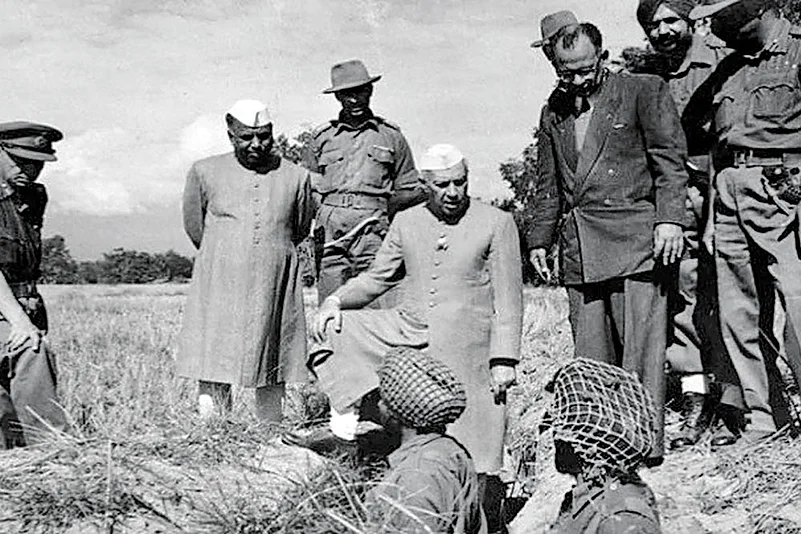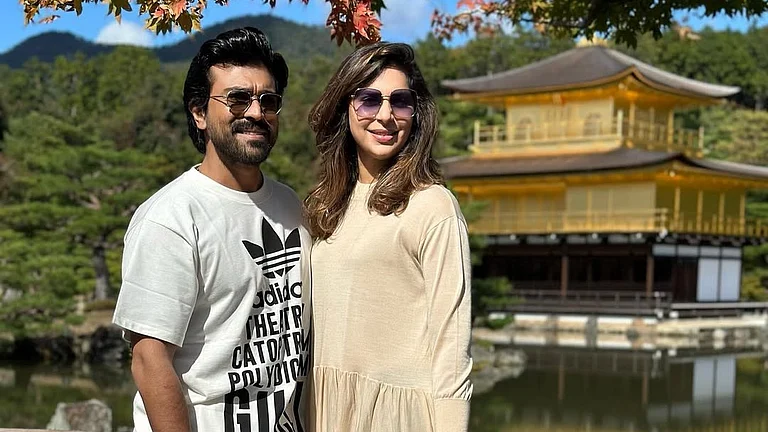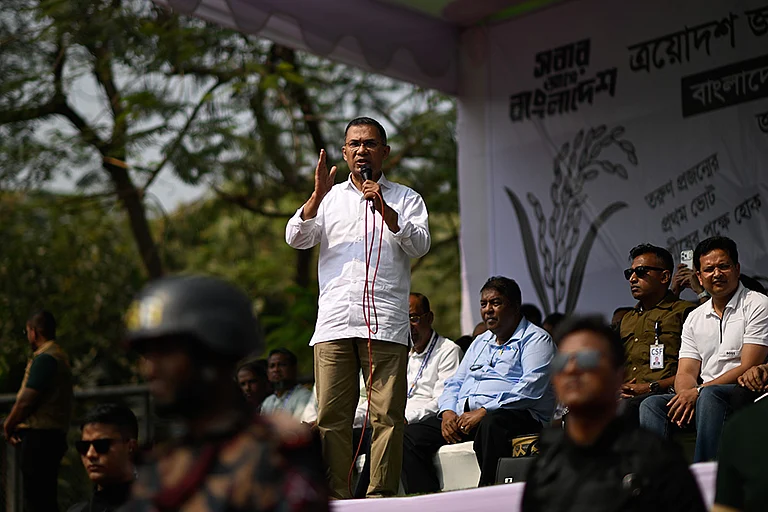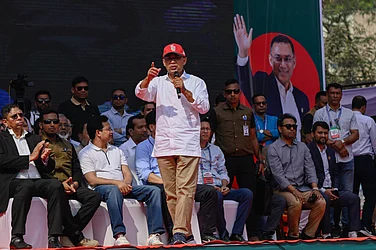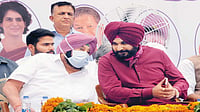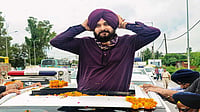Prime Minister Narendra Modi seldom gives a quarter to his political opponents in rhetoric. Yet, over the past weeks, since trespassing Chinese soldiers killed 20 of our jawans in Ladakh’s Galwan Valley on June 15, the PM has given an inch and the Congress is having a field day. The trigger was a single statement on June 19. At the all-party meeting after the Galwan deaths, Modi said there had been “no intrusion into Indian territory, nor any Indian post under control of a foreign country”. Did he mean India had given up its claim on the Galwan valley to China? The opposition parties and retired army officers questioned. The PMO clarified later that the PM meant to say there was no intrusion on Indian soil at the time of the meeting.
An overarching sentiment reflected in the Congress’s attacks on Modi in the backdrop of this raging crisis has been, “Nehru at least put up a fight”. For the 58 years that have passed since the country’s chastising defeat in the 1962 Sino-Indian War, the failure of Jawaharlal Nehru in deciphering China’s expansionist intent had rendered the Congress unqualified in critiquing any non-Congress government over the China policy. It is ironical that Nehru, who presided over India’s loss of Aksai Chin to China, has now helped the Congress rediscover its aggression against Modi’s handling of Chinese intrusions.
“The 1962 war happened just 14 years after we gained independence. We were a poor country and our military capabilities were still being built, but when China betrayed India’s trust and threatened our territorial integrity, Nehru decided to fight back. Then within five years, India avenged the defeat in 1967 by pushing back China from the kingdom of Sikkim and which later joined our republic,” says Congress spokesperson Pawan Khera. “What has Modi done in Galwan valley today? He says there is no Chinese intrusion after 20 of our armymen were martyred; he allows China to claim the entire Galwan valley as its territory and even refuses to name China as the aggressor”.
There is no denying that Nehru’s conviction that the Chinese Communist Party leadership—chairman Mao Zedong and premier Zhou Enlai—would never attack proved disastrous for India. In the wake of the current Indo-China crisis and also the 72-day standoff between the two countries in Doklam in 2017, it is worth asking whether Modi’s public bonhomie with Chinese premier Xi Jinping is a case of déjà vu from the Nehruvian-era.
K. Natwar Singh, a former Indian diplomat who worked in China in 1958 and later as India’s foreign minister, says: “Nehru handled China badly because he took an emotional view of Sino-Indian relations…the 1962 war was a disaster for India and only two people were responsible for it, Nehru and V.K. Krishna Menon (then defence minister). What we are now witnessing an aggression on a small scale but, like in 1962, we have responded later than we should have and Modi’s statement about no Chinese incursions makes his handling of the crisis seem worse than Nehru’s response in 1962.”
Singh also makes an important distinction between Nehru and Modi with regard to how the two prime ministers addressed the Chinese crisis before the public. “Knowing full well that he will be lambasted for the crisis, Nehru had convened a special session of the Parliament during the 1962 war and never tried to hide the facts from the press. Today, using the excuse of COVID-19, the Parliament is not being convened but it baffles me that Modi has not even addressed a press conference to clear the air on the standoff,” he says.
The Congress is not amused at Modi’s refusal to address an open presser—he hasn’t done so ever since he became PM in May 2014—but the party feels that the least he could do was to address questions raised in the public domain by the Opposition and several military experts. “The Congress president had raised several questions about the Ladakh situation at the all-party meeting convened by Modi but he didn’t answer any of them. Thereafter, we have regularly put out questions through the media. Why is Modi so scared of answering these questions? Does the nation not have the right to know whether China has taken over our territory or not, whether our army can patrol the areas in Galwan today which they were patrolling before April 2020,” Congress media cell chief Randeep Surjewala tells Outlook.
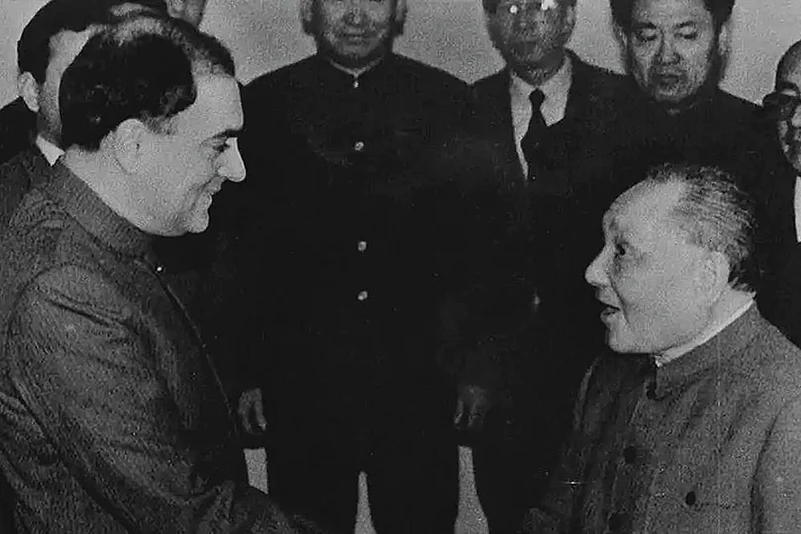
Ex-PM Rajiv Gandhi with ex-Chinese premier Deng Xiaoping in 1988.
Amid the Congress’s rediscovery of Nehru, Natwar Singh points at one “surprising exclusion” in his former party’s tirade on the India-China crisis. “It is fine for the Congress to say that Nehru put up a fight and Modi didn’t but I wonder why no one is talking about Rajiv Gandhi’s contribution to rebuilding India’s relationship with China in 1988 and how those gains have been undone now,” Singh says.
Singh recalls his visit to China with Rajiv Gandhi, then prime minister, in 1988. “Rajiv was the first Indian PM to set foot in Beijing since the late 1950s. The camaraderie that Rajiv struck with Deng Xiaoping helped successive Indian governments to maintain cordial relations with China through treaties like the 1993 Peace and Tranquility Agreement. Between 1988 and June 2020, not a single bullet was fired on the Sino-India border by either force. Today, that truce has been shattered despite Modi’s frequent meetings with Xi Jinping. The Congress should be asking why this happened”.
The Congress, says Singh, must not draw parallels between the 1962 war and the present crisis because “to put it very mildly, the Chinese gave us a licking back then”. Nonetheless, with most defence and diplomatic experts nearly unanimous about no early possibility of a de-escalation of tensions between India and China, the war of words between the Congress and BJP on Modi’s handling of the crisis is expected to get worse. Can Modi defeat Nehru in this new face-off? Or will the Congress be resurrected by the former prime minister who died 56 years ago?






